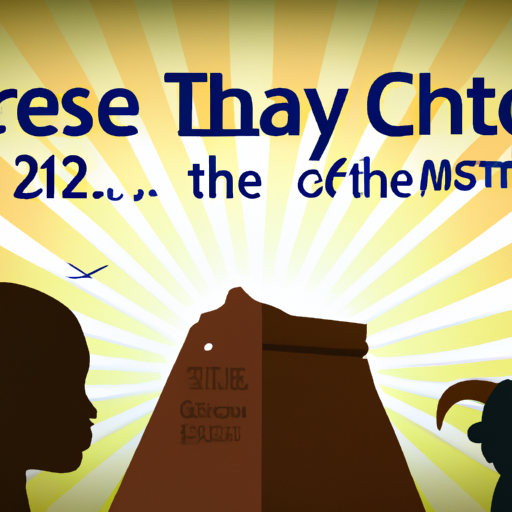Don’t Fall for Logical Fallacies: How They Can Impact Critical Thinking
Logical fallacies are errors in reasoning that can lead to false conclusions. They can have a significant impact on critical thinking, as they can lead to poor decisions and wrong conclusions.
Logical fallacies can be divided into two categories: formal fallacies and informal fallacies. Formal fallacies are errors in reasoning that follow a specific logical form. Examples include affirming the consequent and denying the antecedent. Informal fallacies are errors in reasoning that do not follow a specific logical form. Examples include appeal to authority and false dilemma.
Logical fallacies can have a significant impact on critical thinking in several ways. First, they can lead to false conclusions. If a person relies on a logical fallacy to make a decision, the conclusion may be wrong. This can lead to poor decisions, as the person is not considering all of the available evidence. Second, logical fallacies can lead to confirmation bias. If a person is relying on a logical fallacy to make a decision, they may be more likely to accept evidence that supports their conclusion, while ignoring evidence that contradicts it. This can lead to a biased view of the issue, as the person is not considering all of the available evidence.
Finally, logical fallacies can lead to a lack of critical thinking. If a person is relying on a logical fallacy to make a decision, they may not be engaging in critical thinking. They may not be considering alternative points of view, or considering all of the available evidence. This can lead to poor decisions, as the person is not engaging in the process of critical thinking.
In conclusion, logical fallacies can have a significant impact on critical thinking. They can lead to false conclusions, confirmation bias, and a lack of critical thinking. It is important to be aware of logical fallacies and to avoid relying on them when making decisions. By doing so, one can ensure that they are engaging in the process of critical thinking and making informed decisions.
Logical fallacies are errors in reasoning that can lead to false conclusions. They can be used deliberately to deceive or unintentionally due to a lack of understanding of the subject. Logical fallacies can have a significant impact on critical thinking, as they can lead to flawed arguments and incorrect conclusions. It is important to understand how logical fallacies can affect critical thinking in order to identify and avoid them.
The first way that logical fallacies can affect critical thinking is by leading to false conclusions. Logical fallacies are errors in reasoning, which can lead to incorrect conclusions. For example, the false cause fallacy is when one assumes that because two events occurred together, one caused the other. This fallacy can lead to false conclusions about the causes of events, which can lead to incorrect decisions.
The second way that logical fallacies can affect critical thinking is by leading to flawed arguments. Logical fallacies can be used to manipulate an argument in order to make it seem more convincing than it actually is. For example, the straw man fallacy is when one misrepresents an opponent’s argument in order to make it easier to refute. This fallacy can lead to arguments that are not based on facts, but rather on flawed interpretations of the opponent’s argument.
The third way that logical fallacies can affect critical thinking is by leading to poor decision-making. Logical fallacies can lead to incorrect conclusions, which can lead to poor decisions. For example, the slippery slope fallacy is when one assumes that one event will lead to a chain of other events, which is often not the case. This fallacy can lead to decisions that are based on false assumptions, which can have negative consequences.
Which ways do logical fallacies affect critical thinking?
The first way that logical fallacies can affect critical thinking is by leading to biased conclusions. Logical fallacies can be used to manipulate an argument in order to make it seem more convincing than it actually is. For example, the appeal to emotion fallacy is when one uses emotion to influence an argument, rather than facts or logic. This fallacy can lead to conclusions that are based on bias, rather than facts.
The second way that logical fallacies can affect critical thinking is by leading to confirmation bias. Logical fallacies can be used to support a pre-existing belief, even if it is not based on facts. For example, the cherry-picking fallacy is when one only presents evidence that supports one’s argument, while ignoring evidence that contradicts it. This fallacy can lead to confirmation bias, as one’s argument is only supported by selective evidence.
The third way that logical fallacies can affect critical thinking is by leading to groupthink. Logical fallacies can be used to manipulate an argument in order to make it seem more convincing than it actually is. For example, the bandwagon fallacy is when one assumes that because many people believe something, it must be true. This fallacy can lead to groupthink, as one’s argument is only supported by the beliefs of others, rather than facts or logic.
How do logical fallacies affect critical thinking?
The first way that logical fallacies can affect critical thinking is by leading to a lack of critical thinking. Logical fallacies can be used to manipulate an argument in order to make it seem more convincing than it actually is. For example, the ad hominem fallacy is when one attacks an opponent’s character, rather than the argument itself. This fallacy can lead to a lack of critical thinking, as one’s argument is only supported by personal attacks, rather than facts or logic.
The second way that logical fallacies can affect critical thinking is by leading to oversimplification. Logical fallacies can be used to make an argument seem simpler than it actually is. For example, the false dichotomy fallacy is when one assumes that there are only two options, when there may be more. This fallacy can lead to oversimplification, as one’s argument is only supported by a limited number of options.
The third way that logical fallacies can affect critical thinking is by leading to an inability to consider all perspectives. Logical fallacies can be used to manipulate an argument in order to make it seem more convincing than it actually is. For example, the hasty generalization fallacy is when one draws a conclusion based on a limited amount of evidence. This fallacy can lead to an inability to consider all perspectives, as one’s argument is only supported by a limited amount of evidence.
Conclusion
Logical fallacies can have a significant impact on critical thinking, as they can lead to false conclusions, flawed arguments, poor decision-making, biased conclusions, confirmation bias, groupthink, a lack of critical thinking, oversimplification, and an inability to consider all perspectives. It is important to understand how logical fallacies can affect critical thinking in order to identify and avoid them. By recognizing logical fallacies, one can ensure that their arguments are based on facts and logic, rather than false assumptions or bias. This will lead to better decision-making and more accurate conclusions.
Logical fallacies can have a significant impact on critical thinking, as they can lead to faulty conclusions and the acceptance of false premises. When someone is presented with a logical fallacy, they may be tempted to accept the conclusion without critically evaluating the evidence and arguments presented. This can lead to a lack of critical thinking, as the person is not engaging in the process of questioning and analyzing the evidence and arguments.
Logical fallacies can also lead to the acceptance of false premises. When an argument is based on a false premise, the conclusion may be incorrect, even if the argument is logically sound. This can lead to a lack of critical thinking, as the person is not engaging in the process of questioning and analyzing the evidence and arguments presented.
Logical fallacies can also lead to a lack of critical thinking when the person does not recognize them. For example, if someone is presented with an argument that contains a logical fallacy, they may accept the conclusion without recognizing the fallacy. This can lead to a lack of critical thinking, as the person is not engaging in the process of questioning and analyzing the evidence and arguments presented.
Finally, logical fallacies can lead to a lack of critical thinking when the person does not recognize the difference between valid and invalid arguments. If someone is presented with an argument that contains a logical fallacy, they may accept the conclusion without recognizing the fallacy. This can lead to a lack of critical thinking, as the person is not engaging in the process of questioning and analyzing the evidence and arguments presented.
In conclusion, logical fallacies can have a significant impact on critical thinking. They can lead to a lack of critical thinking, as the person is not engaging in the process of questioning and analyzing the evidence and arguments presented. They can also lead to the acceptance of false premises, and a lack of recognition of the difference between valid and invalid arguments. Therefore, it is important to be aware of logical fallacies and to be able to recognize them in order to engage in critical thinking.





